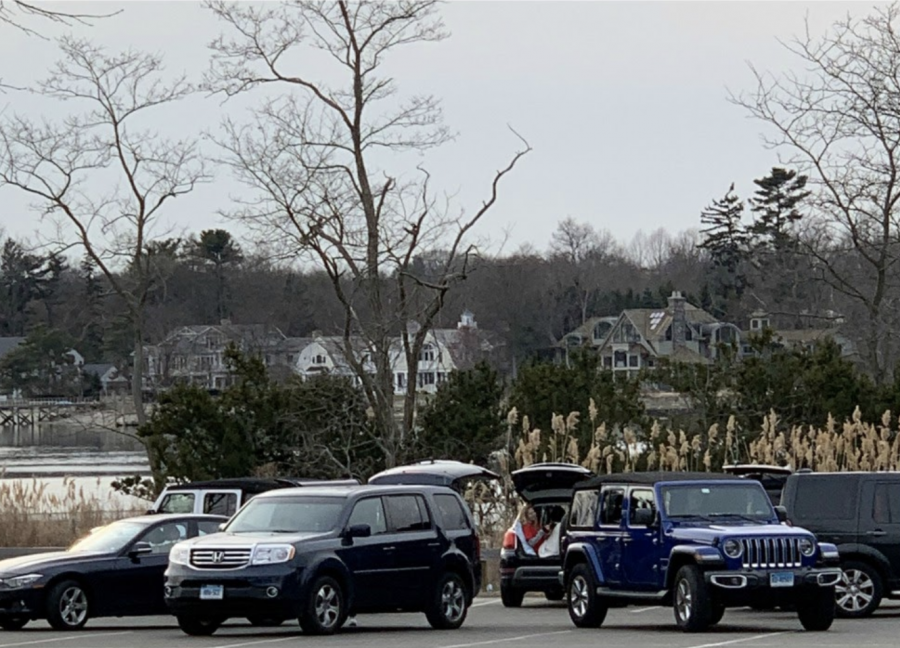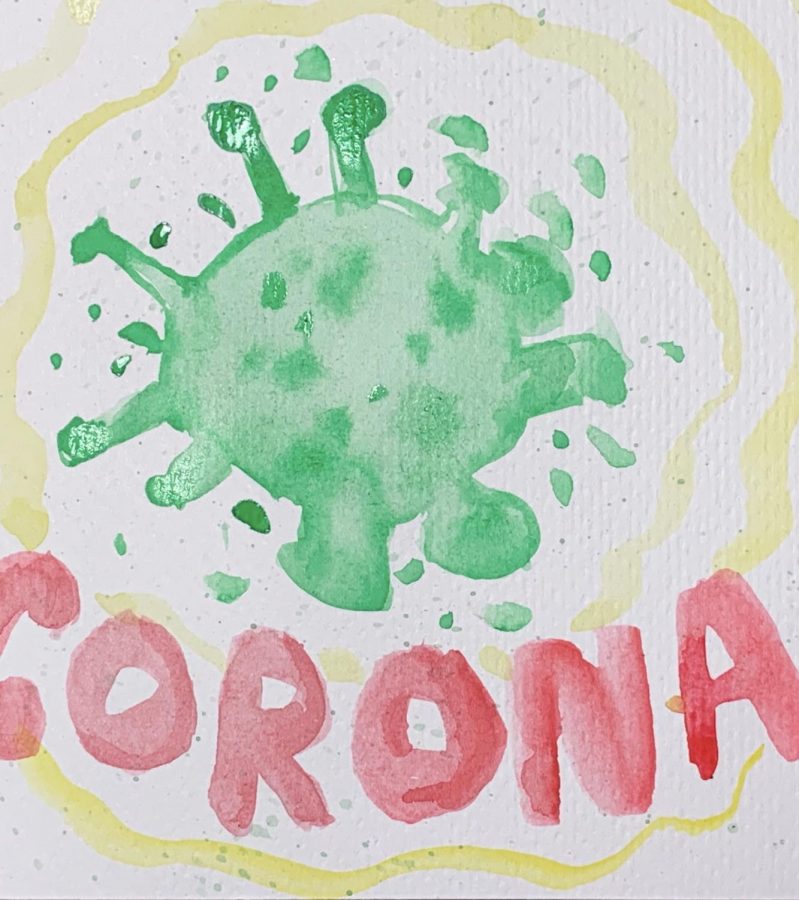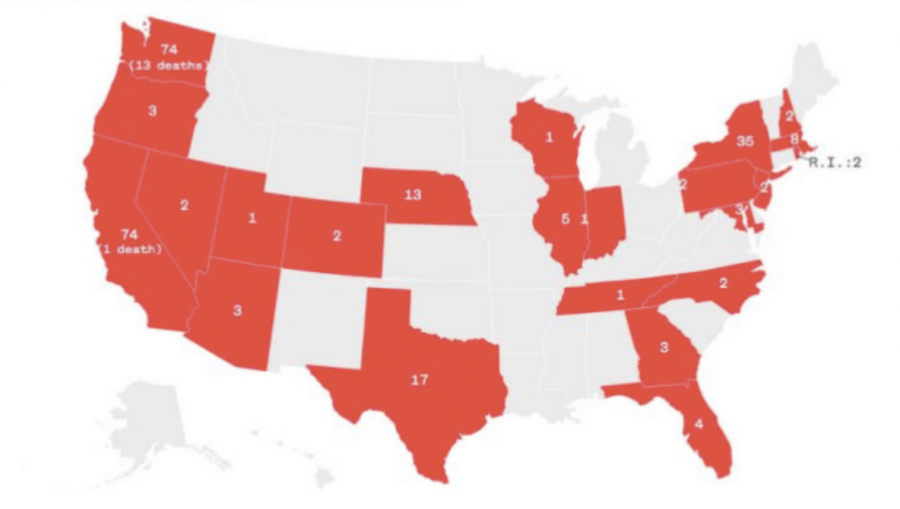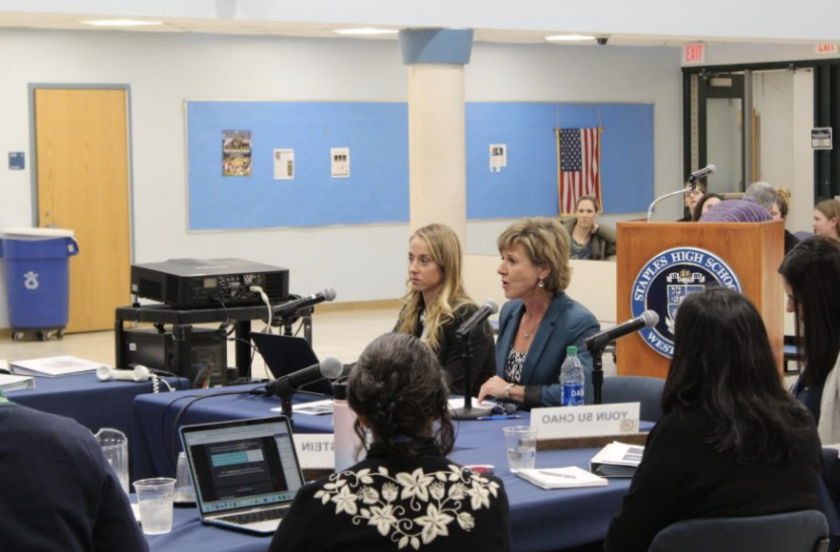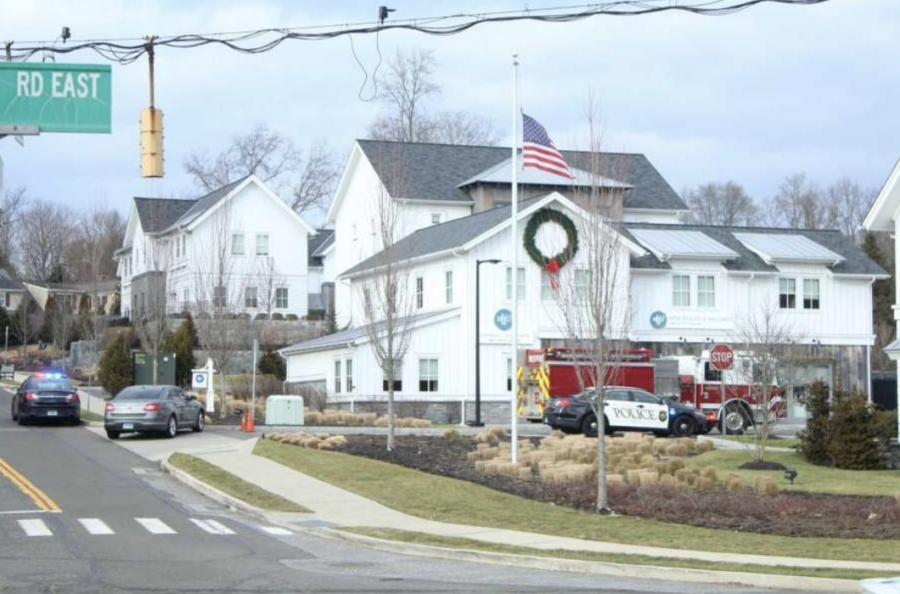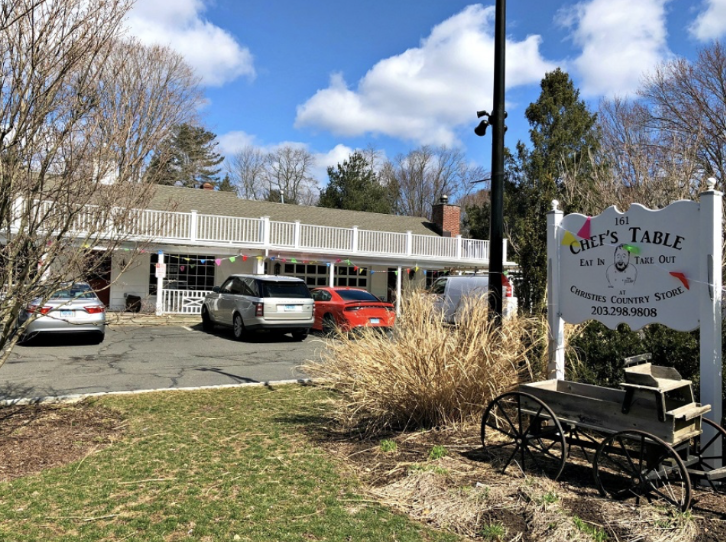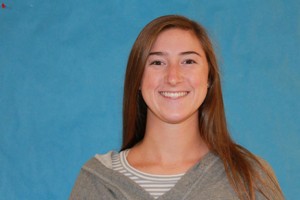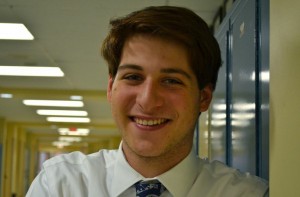Click here to view the most recent Inklings issue.
“So I woke up Friday morning like it was any normal day… Got to school, saw my friends… The usual…”
And so begins a recount of a morning that spiraled into a terrifyingly historical event.
Kim Saltzman is a sophomore at Newtown High School. On Fri., Dec. 14 her life, her role as a citizen of Newtown, and her sense of security within the close-knit community of Sandy Hook were changed forever.
This is her story.
Saltzman’s strikingly normal routine continued through a free period. She used the time to sit in the auditorium (which would later house a presidential speech) and chat with her best friend while doing a bit of homework. After, Saltzman made her way to chemistry. The class began with a review of a packet the class was in the midst of finishing and a continued effort to complete periodic tables. Saltzman’s teacher, a thin, young, dark-haired woman who “loves chem” led them through their activities.
At around 9:40 a.m., she was interrupted by Newtown High School Vice Principal Jason Hiruo’s voice, sounding over the school intercom. The normalcy began to dissipate. Saltzman and her classmates listened as Hiruo informed them, “We are going into a lockdown. This is not a drill.”
Huddled behind the lab tables underneath windows, the students assumed it was something inconsequential; perhaps there was a dog loose in the school. Their teacher remained at her desk, out of the way of any windows, so that she could relay them information. Sitting with their legs pressed against their chests, they remained calm; most longed for their cell phones which lay idly on desks across the room.
Someone mentioned a discussion they had had in their sociology class regarding school shootings.
“That’s impossible. That will never happen in Newtown,” Saltzman responded.
After about one and a half hours, the students were allowed to retrieve their phones and began to string together information as it came in, through emails and news sources.
From that point on, Saltzman’s once-deemed trivial day at Newtown High School became a matter of public knowledge. Her teacher walked over from her desk to inform her what the world was already discovering, tweet by tweet, article brief by article brief. Sandy Hook Elementary School, the school Saltzman had attended for four years of childhood, had been invaded by a man with a gun. The elementary school was in lockdown, too. Saltzman’s vice principal reiterated, over the loudspeaker again, “We will remain in lockdown, this is not a drill.”
That’s when, Saltzman said, she “knew it was bad.”
The students began to get hungry. “It felt like time stopped. It felt like forever,” said Saltzman.
And they worried. One of Saltzman’s friends had a sister at Sandy Hook Elementary School. Ultimately she survived the shooting, but at the time, Saltzman and her friend attempted to gather information about the sister’s safety and whereabouts.
“We were in complete shock,” said Saltzman, who admits even now that “the fact that it happened still hasn’t sunk in.”
In total, three hours went by before the students were released to their next class.
At that point, with time remaining in the school day but little sense of purpose, teachers attempted to distract students in their classes. Saltzman’s English teacher asked that they turn off their smartphones–he told them he would keep them updated. By the time Spanish rolled around, Saltzman’s last period class, focus had disappeared.
“I remember looking out the window, seeing the helicopters in the sky… I could hear teachers crying in the hallways. I was getting text messages from everyone, my friends from as far as California and family from all over,” recalled Saltzman.
Returning home to her mother, Saltzman was informed that their home’s short three-minute-distance from Sandy Hook had meant an evacuation. The whole situation felt surreal. She gathered her dance bag and tended to her commitments at a dance academy in Trumbull where she was substituting in a ballet class. She taught three classes to little children, all the while struggling to keep her composure in a situation that felt unimaginable. Practice for an upcoming performance followed.
“I remember going into my rehearsal and dancing to ‘Amazing Grace’ and completely losing it,” Saltzman said. “It was as if it hit me but yet still seemed so unreal.”
Saltzman arrived home hours later to a quiet house. Enveloped by the serenity and at last isolated from the constant action and distraction, she began to cry. Then she reached out to her friends.
“I called and texted all my friends saying ‘Thank you for being in my life.’ I told them that life is short, and that I needed them to know that I loved them.”
While it’s true, and extremely fortunate, that none of Saltzman’s close friends had family members who were killed in the shooting, in a town the size of Newtown, Conn., home to just 27,000, she said everyone knows someone who passed. Her mom, for example, works with the dad of one of the 20 children killed last Friday.
“We all know someone or know someone who knew someone. Newtown is so tight that even if you don’t ‘know’ someone, you know their face. That’s what made Newtown special,” said Saltzman.















































